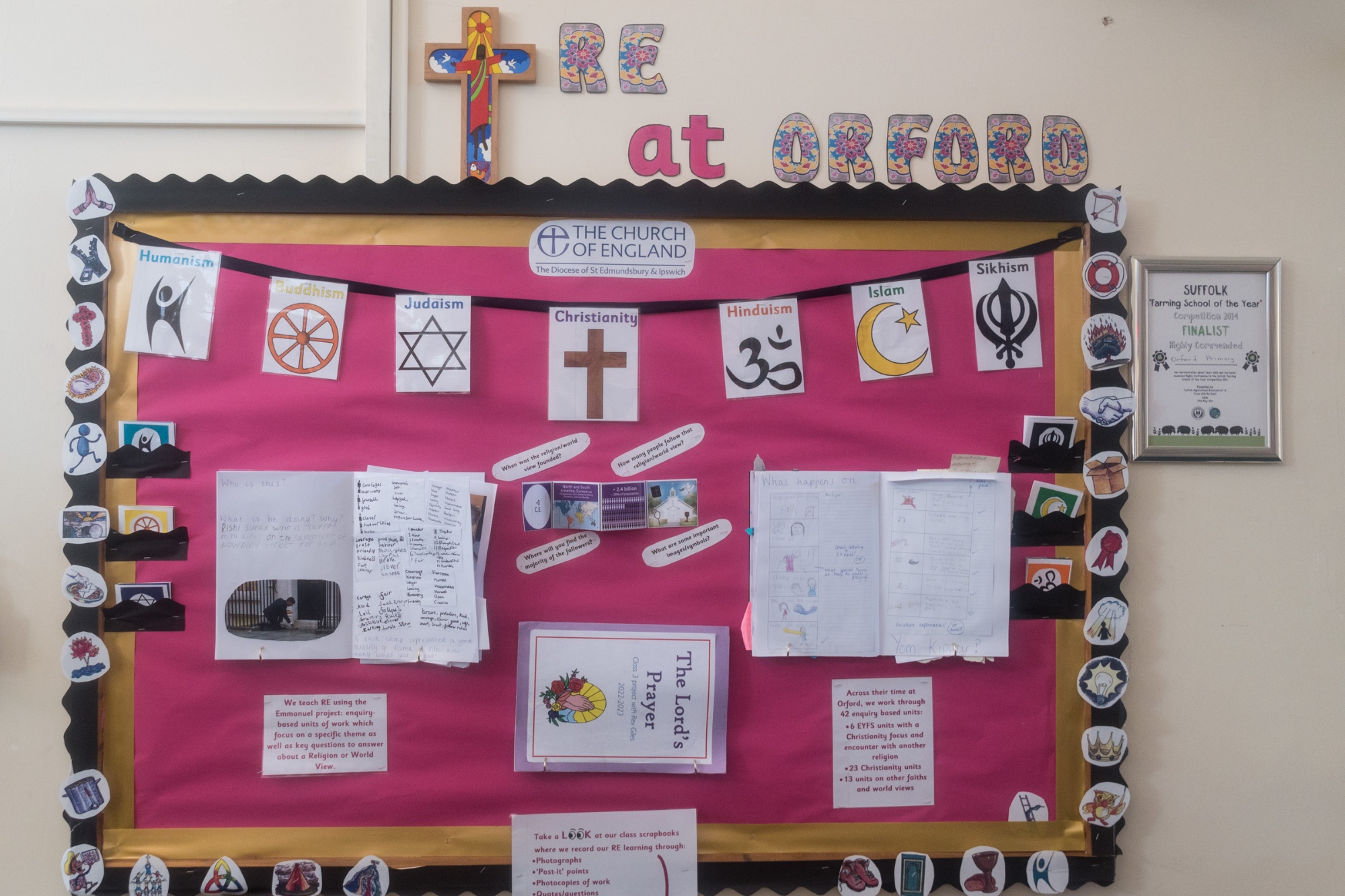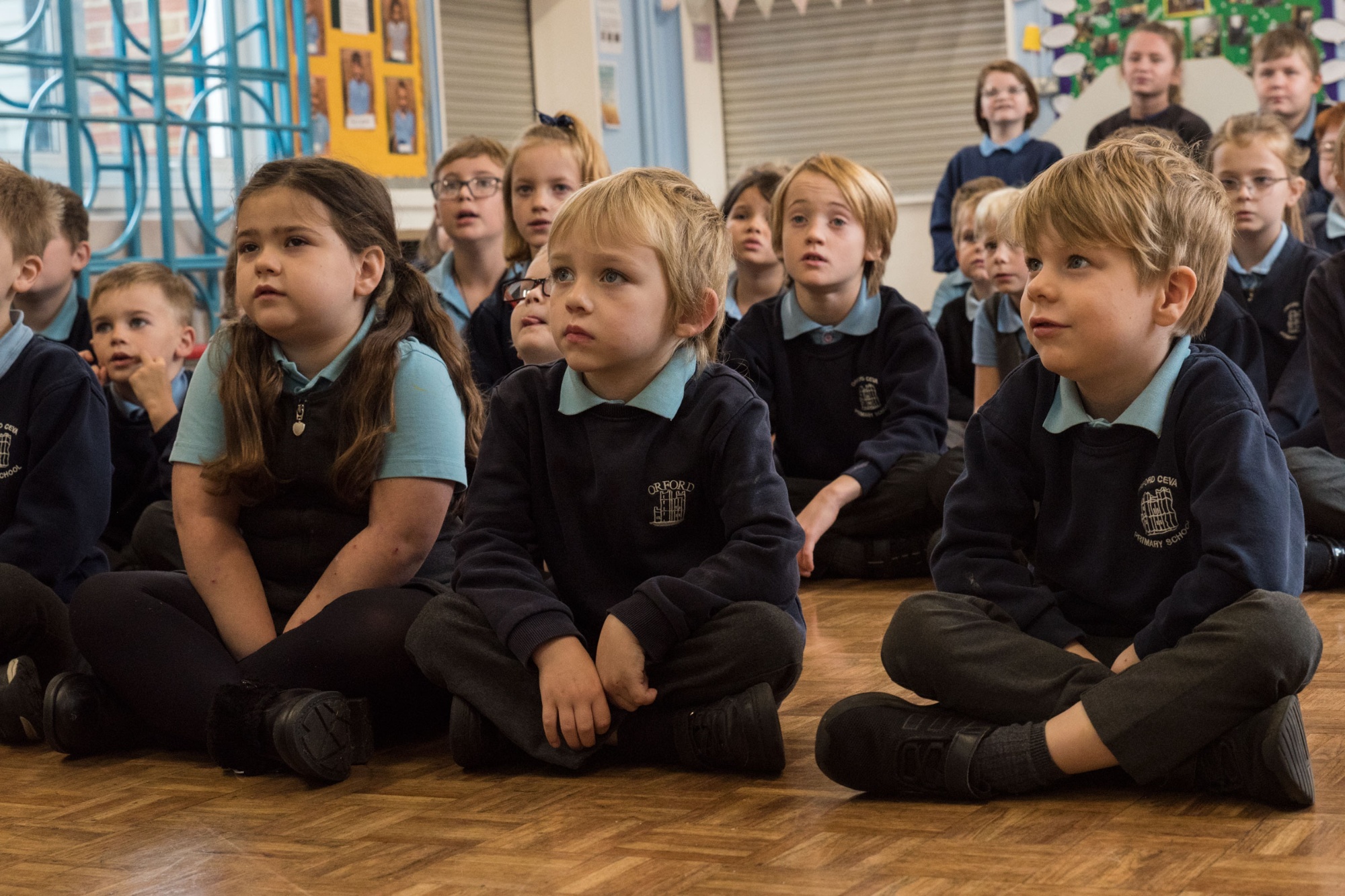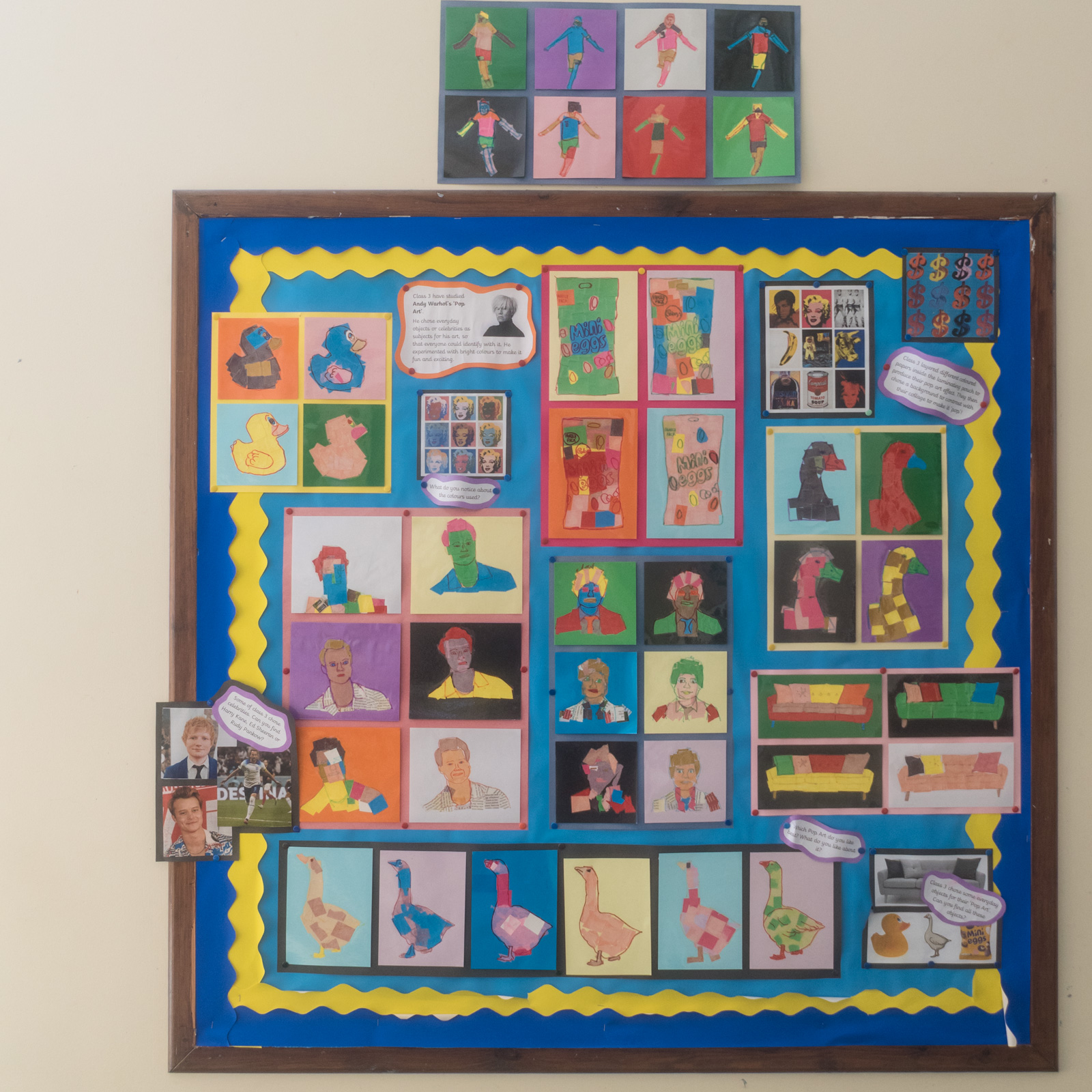RE Statement of Entitlement

Religious Education in Church of England Schools
A Statement of Entitlement
A high quality religious education (RE) curriculum is essential to meet the statutory requirement for all maintained schools to teach a broad and balanced curriculum. At the heart of RE in church schools is the teaching of Christianity, rooted in the person and work of Jesus Christ. There is a clear expectation that as inclusive communities, church schools encourage learning about other religions and world views* fostering respect for them. Although there is not a National Curriculum for RE, all maintained schools have a statutory duty to teach it. This is equally applicable to academies and free schools as it is to maintained schools. In foundation and voluntary controlled schools with a religious character, RE must be taught according to the Locally Agreed Syllabus unless parents request RE in accordance with the trust deed of the school; and, in voluntary aided schools RE must be taught in accordance with the trust deed.
learning about other religions and world views* fostering respect for them. Although there is not a National Curriculum for RE, all maintained schools have a statutory duty to teach it. This is equally applicable to academies and free schools as it is to maintained schools. In foundation and voluntary controlled schools with a religious character, RE must be taught according to the Locally Agreed Syllabus unless parents request RE in accordance with the trust deed of the school; and, in voluntary aided schools RE must be taught in accordance with the trust deed.
In Church of England schools the students and their families can expect a religious education curriculum that is rich and varied, enabling learners to acquire a thorough knowledge and understanding of the Christian faith: for example through the Understanding Christianity resource. Church schools should provide a wide range of opportunities for learners to understand and to make links between the beliefs, practices and value systems of the range of faiths and world views studied. Church schools should use some form of enquiry approach that engages with, for example biblical text, and helps develop religious and theological literacy. Links with the Christian values of the school and spiritual, moral, social and cultural development are intrinsic to the RE curriculum and should have a significant impact on learners.
RE must have a very high profile within the church school curriculum and learning activities should provide fully for the needs of all learners. Learners should be inspired by the subject and develop a wide range of higher level skills such as enquiry, analysis, interpretation, evaluation and reflection to deepen their understanding of the impact of religion on the world. Attainment should be high and progress significant in developing an understanding of Christianity and a broad range of religions and world views.
The effectiveness of denominational education in Church of England schools is evaluated during the statutory section 48 (SIAMS) inspection. The Evaluation Schedule assesses the way RE contributes to a church school’s Christian character. It highlights the responsibility of church school leaders to support and resource RE, and those teaching it. In voluntary aided schools, a judgement on standards in teaching and learning in RE is included in the SIAMS report. This judgement is made against the expectations set out in this document.
Religious education (RE)
- The aims of Religious Education in Church schools are:
- To enable pupils to know about and understand Christianity as a living faith that influences the lives of people worldwide and as the religion that has most shaped British culture and heritage.
*The phrase world views is used here and throughout the document to refer to the variety of smaller religious communities represented in Britain e.g. Baha’i and to non-religious world views such as Atheism and Humanism
-
- To enable pupils to know and understand about other major world religions and world views, their impact on society, culture and the wider world, enabling pupils to express ideas and insights.
- To contribute to the development of pupils’ own spiritual/philosophical convictions, exploring and enriching their own beliefs and values.
- Appropriate to age at the end of their education in Church schools the expectation is that all pupils are religiously literate and as a minimum pupils are able to:
- Give a theologically informed and thoughtful account of Christianity as a living and diverse faith.
- Show an informed and respectful attitude to religions and world views in their search for God and meaning.
- Engage in meaningful and informed dialogue with those of other faiths and none.
- Reflect critically and responsibly on their own spiritual, philosophical and ethical convictions.
Effective teaching and learning about Religions and World Views
3. Church schools have a duty to provide accurate knowledge and understanding of religions and world views. They should provide:
- A challenging and robust curriculum based on an accurate theological framework.
- An assessment process which has rigour and demonstrates progression based on knowledge and understanding of core religious concepts.
- A curriculum that draws on the richness and diversity of religious experience worldwide.
- A pedagogy that instils respect for different views and interpretations; and, in which real dialogue and theological enquiry takes place.
- The opportunity for pupils to deepen their understanding of the religion and world views as lived by believers.
- RE that makes a positive contribution to SMSC development.
Curriculum balance
4. Christianity should be the majority study in RE in every school. In Church schools that should be clearly adhered to.
- KS 1 – 3 at least 2/3rds Christianity.
- KS 4 the study of Christianity will be a significant and substantial part of any Religious Studies qualification.
- KS 5 continue the study of religion and world views within the provision of core RE in an appropriate format for all students.
Curriculum time
5. Sufficient dedicated curriculum time, meeting explicitly RE objectives, however organised, should be committed to the delivery of RE. This should aim to be close to 10% but must be no less than 5%.
NB: The RE entitlement is totally separate from requirements for Collective Worship.
Developing staff expertise
6. To demonstrate the subject’s comparable status with other core curriculum areas in both staffing and resourcing, it should be a priority in Church schools to build up staff expertise in RE specifically but not exclusively, working towards:
- At least one member of staff having specialist RE training or qualifications.
- All staff teaching RE having access to appropriate professional development.
- All teaching staff and governors having an understanding of the distinctive role and purpose of RE within church schools.
- A governing body which monitors standards in RE effectively.
Expected academic outcomes for pupils
7. Pupil achievement in RE should equal or be better than comparable subjects, and all pupils should take a recognised and appropriate qualification at KS 4.
The role of the Diocesan Boards of Education
8. One function of Diocesan Boards of Boards of Education (DBEs) as set out in the DBE measure is to promote, or assist in the promotion of, RE in schools in the diocese. This can be fulfilled by:
- Monitoring the quality of RE in church schools.
- Offering high quality training to all schools throughout the diocese so that provision for RE is effective and promotes religious literacy.
Support for effective and outstanding RE
9. RE teachers belong to a wider educational and church community. They should expect positive support in providing effective and outstanding RE from:
- Their senior management team.
- Their governing body, especially Foundation governors.
- Their local Diocesan Board of Education, including a Schools’ Adviser with an appropriate RE background. Clergy.
- The Church of England Education Office (see Making a Difference p.31 no.4).
- The Church of England representatives on their local SACRE.
1 Where schools follow an Agreed Syllabus which requires less than 2/3rd Christianity, they should enrich their Christianity input e.g. with additional whole-school days on underlying concepts and beliefs of Christian festivals
Derek Holloway June 2016
School Character and SIAMS Development Manager












